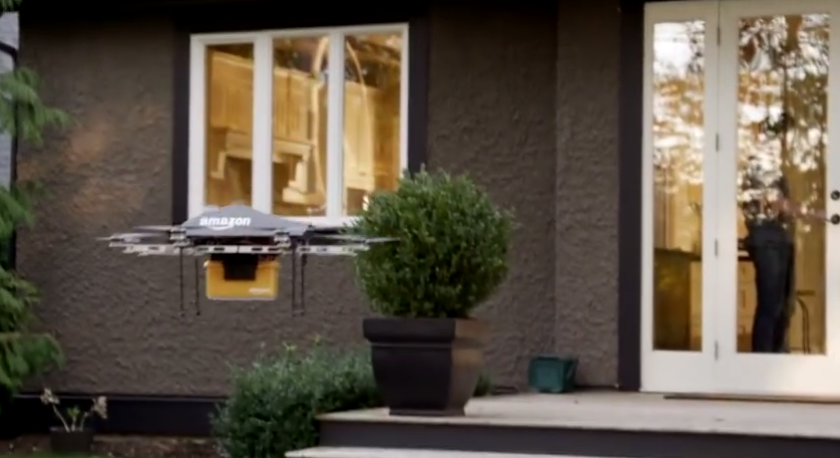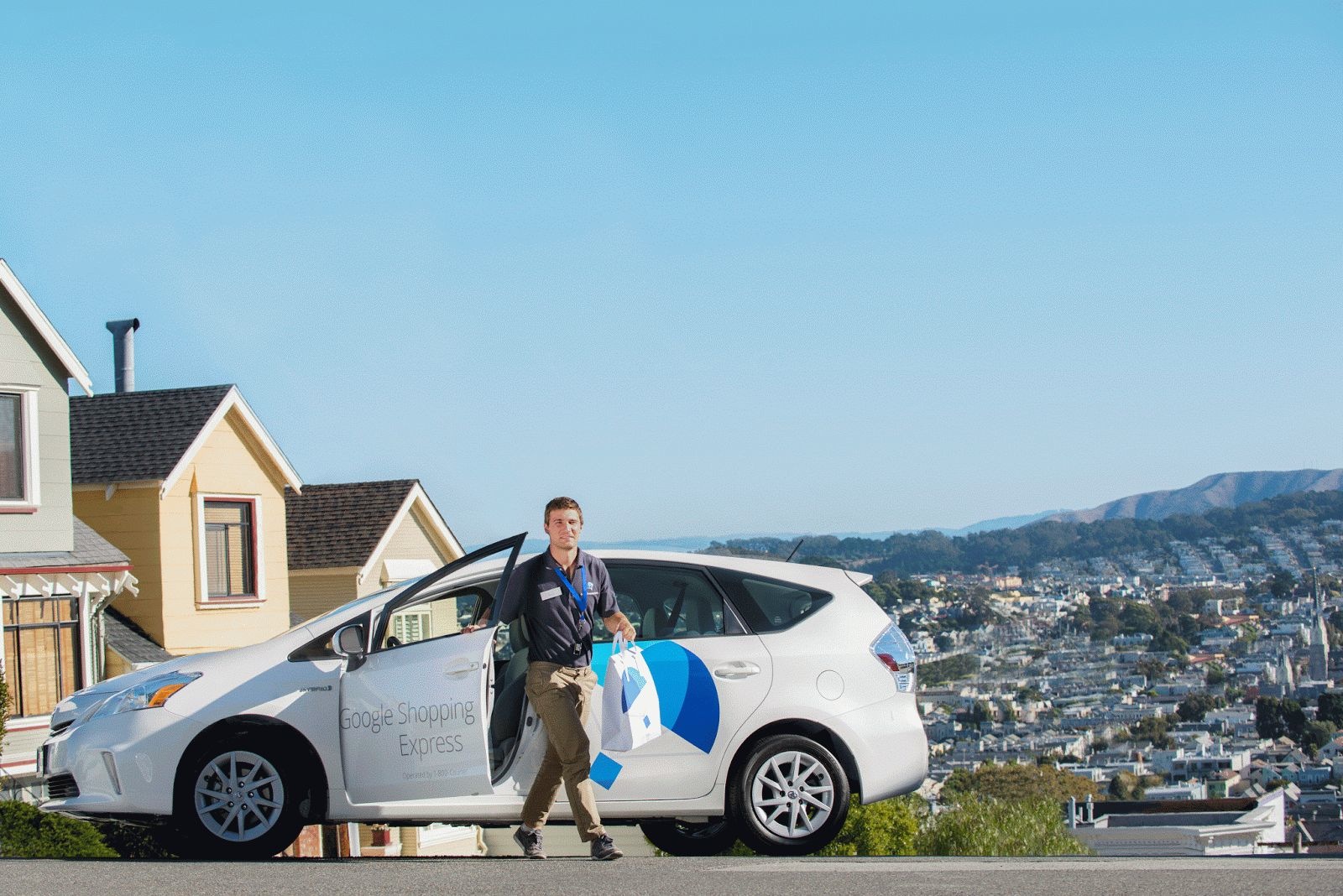Google chairman Erich Schmidt is definitely on a roll these days. He first posted a guide on how to convert from iPhone to Android which draw much ridicule in suggesting that the latest high-end phones from Samsung, Motorola and Google represent “a great Christmas present to an iPhone user” because these devices have “better screens, are faster and have a much more intuitive interface”.
Now, Schmidt’s attention turns to Amazon‘s conceptual sci-fi Prime Air service that will use miniature everyday drones to deliver packages at customers’ doorsteps. This, according to Schmidt, constitutes a serious violation of privacy because the drone technology can be used to spy on neighbors and record your private activities…
In an interview with the British newspaper The Guardian, Schmidt contended these drones should be banned from private use because the technology has potential to “democratize the ability to fight war”:
You’re having a dispute with your neighbor. How would you feel if your neighbor went over and bought a commercial observation drone that they can launch from their back yard. It just flies over your house all day. How would you feel about it?
Can someone tell Schmidt that these drones have been selling for years?
He goes on arguing that armies should have drones, not citizens:
It’s got to be regulated. You just can’t imagine that British people would allow this sort of thing, and I can’t imagine American people would allow this sort of thing. It’s one thing for governments, who have some legitimacy in what they’re doing, but have other people doing it … It’s not going to happen.
Like anyone would trust their government with monitoring these things!
In an attempt to support his argument, Schmidt goes on to explain that he was in the room when Google’s leadership shot down a facial recognition service that would look up a person on the web based on a live video feed coming from a smartphone camera.
Image credit: Businessweek / Peg Korpinski.
The decision to kill the product was made because such highly advanced facial recognition could be used for stalking.
“We don’t want to be part of that as a company,” he said. “There are cases where facial recognition can be used, but they need to be fairly carefully boxed”.
According to The Verge, Amazon’s octocopters are capable of delivering packages up to five pounds up to ten miles from the nearest Amazon fulfillment center. The online retail giant showed off Prime Air in a recent test flight video, first shown in a 60 Minutes segment on Cyber Monday Eve.
Amazon said the use of unmanned aerial vehicles would allow its delivery system to get packages into customers’ hands in 30 minutes or less.
“Putting Prime Air into commercial use will take some number of years as we advance technology and wait for the necessary FAA rules and regulations,” the company stated.
So let me see if I get this straight: drones are bad, but Google’s self-driving cars are OK?
If I wanted to be cynical, I’d probably point out that Google violates people’s privacy every single day, amassing huge amounts of intelligence about online users so that it could sell you to advertisers at a premium.
The Microsoft Store offers nice Scroogled merchandize to Google-paranoid families.
And what about Google Glass, which allows users to easily take images or even shoot live video feed straight to YouTube, for the whole world to see?
That doesn’t constitute a breach of privacy?
Or scanning my Gmail messages for keywords in order to inject relevant ads?
The extent of Google’s privacy breach became evident after the United States Federal Trade Commission fined the company in April 2012 for overriding Safari users’ privacy settings to continue tracking the activities of folks who opted-out of such tracking.
On top of the record-setting $22.5 million fine, Google also agreed to pay 37 U.S. states about $17 million to settle the Safari probe case. If I were Schmidt, I’d keep my mouth shut or at least hire a PR person to approve my public comments.
Amazon CEO Jeff Bezos indicated there will be a fleet of shipping drones taking the sky as soon as his company can work out the regulations and figure out how to prevent your packages from being dropped on your head from above. To that end, Schmidt’s comment on Amazon’s Prime Air reveals a hidden agenda of sorts.
I have no problem with Schmidt’s petulant attempts to try to come across as a selfless preacher and the guardian of customers’ privacy, I really don’t.
That being said, there really is no denying that the very virtue of Google’s multi-billion dollar advertising business is to collect personal data because its advertising service depends on amassing personal information and rich intelligence about online users.
But all of that is beyond the point.
What matters for our discussion is the indisputable fact that Google has recently started experimenting with same-day package delivery in urban areas with its Shopping service.
Moreover, 9to5Google learned back in February from “an extremely reliable source” that Google was already working on a new delivery service that would use – yes, miniature autonomous drones. The following month, the publication added that long-term plans involve “use self-driving cars and flying drones as means of delivery”.
The idea was born in the Google X incubator headed by co-founder Sergey Brin.
Both The Wall Street Journal and The New York Times said that the search giant in fact was planning to take on Amazon’s dominance in same-day delivery with its own service.
Coincidentally or not, Google recently put former Android head Andy Rubin in charge of a “moonshot” project to create a new generation of robots.
According to a New York Times article:
If Amazon can imagine delivering books by drones, is it too much to think that Google might be planning to one day have one of the robots hop off an automated Google Car and race to your doorstep to deliver a package?
Google has since acquired seven technology companies in the robotics space, with the specific goal of automating electronics assembly and compete with companies like Amazon in retailing, according to “several people with specific knowledge of the project”.
All of which exposes Schmidt’s rant on Amazon as an attempt to dampen the obvious excitement surrounding the innovative Prime Air delivery service. Worse, it indicates Google’s uneasiness with Amazon’s service.
Thoughts?




